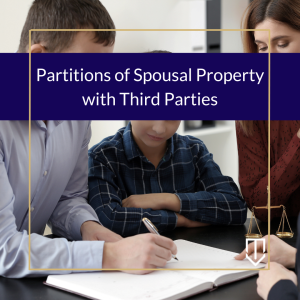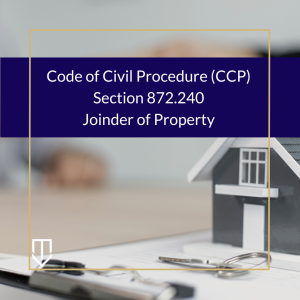 Family Code section 2021 provides that a court “may order that a person who claims an interest in the proceeding be joined as a party” to nullity, dissolution, and legal separation proceedings. (Fam.C. § 2021(a).) An interested third party may wish to join a family law proceeding, or an existing party may want to join the interested individual. An existing party may request that the court join the third party if the third party possesses or claims to own property that the court has jurisdiction over in the proceeding. (Cal. Rules of Court 5.24(c)(1).) Additionally, a third party may request to be joined if they have been served a temporary restraining order that affects their ability to use property they possess or claim to own.
Family Code section 2021 provides that a court “may order that a person who claims an interest in the proceeding be joined as a party” to nullity, dissolution, and legal separation proceedings. (Fam.C. § 2021(a).) An interested third party may wish to join a family law proceeding, or an existing party may want to join the interested individual. An existing party may request that the court join the third party if the third party possesses or claims to own property that the court has jurisdiction over in the proceeding. (Cal. Rules of Court 5.24(c)(1).) Additionally, a third party may request to be joined if they have been served a temporary restraining order that affects their ability to use property they possess or claim to own.
When will courts order joinder in Family Law?
When a claimant has a property interest at stake and is requested to be joined, the court has the discretion to decide whether the claimant will be joined as a party. (Schnabel v. Superior Court (1994) 30 Cal.App.4th 758, 762-63.) In other words, the court is allowed to deny a request for joinder even if the individual seeking it has a legitimate interest in the proceeding. This is called a “permissive” joinder. Joinders are mandatory only when the party sought to be joined has or claims physical custody or visitation of a minor child involved in the family law proceeding. (Cal. Rules of Court 5.24(e)(1).)
 California Partition Law Blog
California Partition Law Blog


 The California Partition Law begins at
The California Partition Law begins at